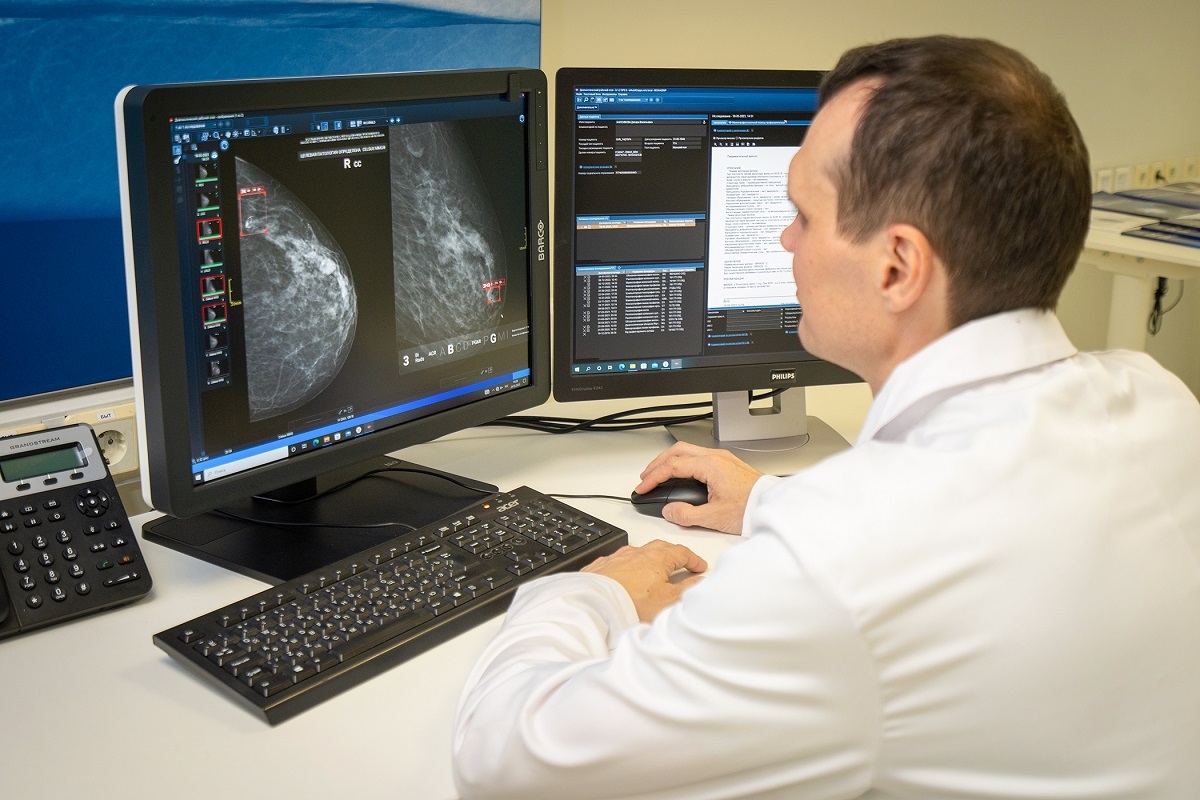In a groundbreaking development, Moscow has taken the lead in 2023 by becoming the first region to incorporate artificial intelligence breast cancer screening under compulsory medical insurance. Over the course of nine months, artificial intelligence has successfully processed a remarkable 200,000 medical images, as stated by the Deputy Head of the Moscow Department of Health, Ilya Tyrov.
Breast cancer screening plays a pivotal role in early cancer detection, and Moscow has harnessed the power of artificial intelligence within the framework of its compulsory medical insurance system. The results have been remarkable; the artificial intelligence's accuracy now rivals that of human doctors, and the use of algorithms has significantly reduced image description time by a factor of eight.
Integrating artificial intelligence image analysis into the compulsory medical insurance rate marks a significant leap toward the widespread implementation of this technology in practical healthcare, with no reliance on grant funding. These medical data remain accessible to city residents at no cost, and employing state-of-the-art smart algorithms promises expedited diagnoses and improved accuracy.
A comparative study conducted by Moscow specialists has unequivocally demonstrated the advantages of artificial intelligence. When evaluating screening mammograms, the incorporation of smart algorithms led to an eightfold increase in the speed of image analysis, thereby reducing the workload for radiologists and hastening the diagnosis of breast cancer.
These algorithms function as part of a scientific experiment aimed at introducing computer vision technology into radiology. The initiative is a joint effort between the Moscow Social Development Complex and the Department of Information Technologies, operating from the Moscow Health Department on the basis of Center for Diagnostics and Telemedicine.
Yuri Vasilev, Senior Radiologist of Moscow and CEO of the Center for Diagnostics and Telemedicine underscores that stringent criteria are maintained for the implementation of AI within compulsory medical insurance. Solutions must possess registration certificates for medical devices, undergo thorough testing, and demonstrate successful results before being integrated into genuine medical research.
Over the past decade, Moscow has comprehensively digitalised its healthcare system. The incorporation of computer vision technology into medicine not only reduces the time needed for diagnostic procedures but also equips medical professionals with invaluable insights for more precise diagnoses and effective treatment recommendations. This project's realization supports the expansion of a market for medical decision support systems in radiological diagnostics, aligning with the national project "Healthcare" and enhancing the quality and accessibility of medical care for Moscow residents.

 This dual assessment of Breast cancer screenings ensures both independence and exceptional quality in evaluation.
This dual assessment of Breast cancer screenings ensures both independence and exceptional quality in evaluation.










.jpeg)


.jpeg)
.jpeg)
.jpeg)
_(1).jpeg)

_(1)_(1)_(1).jpeg)
.jpeg)
.jpeg)
.jpeg)








.jpeg)
.jpeg)